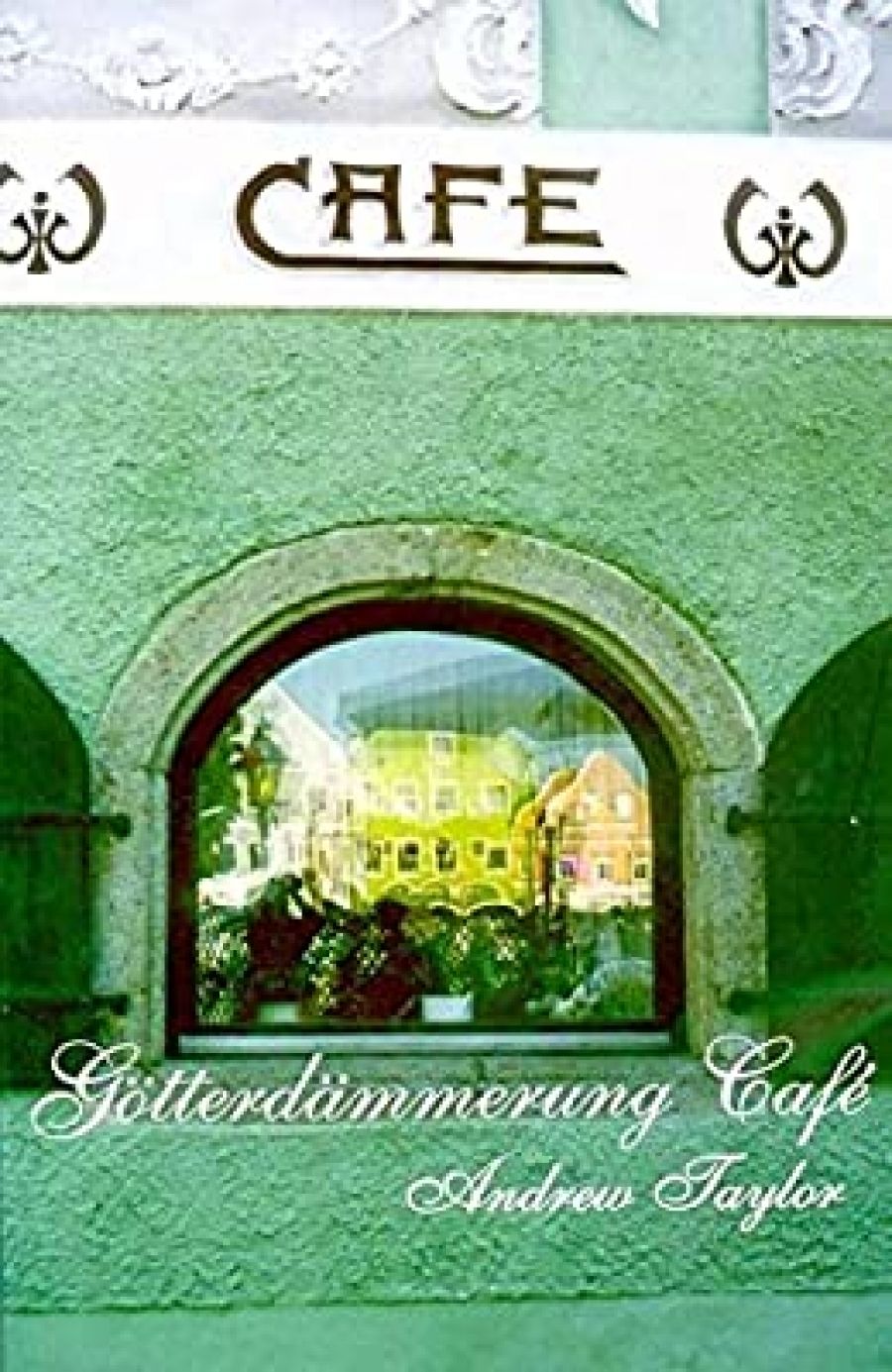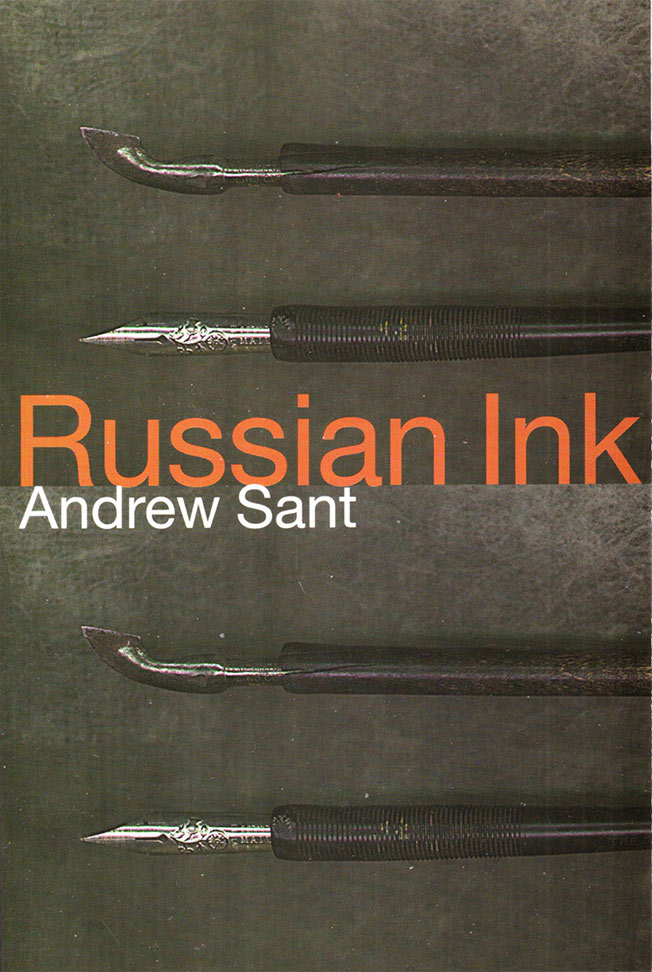
- Free Article: No
- Contents Category: Poetry
- Review Article: Yes
- Online Only: No
- Custom Highlight Text:
Wallace Stevens once remarked: ‘One of the essential conditions to the writing of poetry is impetus.’ It’s a statement worth keeping in mind when confronting a new book of poems, because thinking about impetus helps us locate the concerns of the poet and the orientation of the book. Since poems are not objects so much as events, what drives a poem helps govern how it arrives at its destination – how, in fact, it is received by that welcoming stranger, the reader. Poems reveal their origins, whether they intend to or not. What Emerson says of character, that it ‘teaches above our wills’, that ‘we pass for what we are’, is true for poems as well. So it is not an idle question to ask of these books – these poets – their impetus, remembering that ‘impetus’ derives from the Latin ‘to seek.’
- Book 1 Title: Götterdämmerung Café
- Book 1 Biblio: University of Queensland Press, $19.95 pb, 73 pp
- Book 2 Title: Russian Ink
- Book 2 Biblio: Black Pepper, $21.95 pb, 112 pp
- Book 2 Cover Small (400 x 600):

- Book 2 Cover (800 x 1200):

- Book 2 Cover Path (no longer required): images/ABR_Digitising_2021/Apr_2021/santcoverri.jpg
I think it would be a mistake to assume that these poems seek to communicate with readers. The impetus here is not self-expression. At this point in their careers – and that’s a telling word in itself for a poet – both Andrew Taylor and Andrew Sant have established themselves in durable fashion. Taylor, born in 1940, has just published his tenth volume of poems; Sant, born in 1950, his sixth. Neither, at this juncture, is likely to believe that he is reaching out to a populous audience of poetry lovers. Except in a few cases, that’s a supreme fiction, though a necessary one. Nor are these coterie poets, writing for a small devoted band of followers. No, like most poets at mid-career, the impetus is to write the poems that they, as poets, seek to write. If that sounds tautological, it needn’t be: devoted poets are devoted to their poems; they are ‘makers’, whatever their readers may, in turn, make of them.
Consider the opening poems of each volume, and the way they gesture towards the writing of poetry. Sant begins ‘Nightfall’ with the lines:
The leaves release their light.
Bees, the fuchsia’s guzzlers,
quit their day routine as
somewhere a voice calls,
‘Come inside.’
That voice is presented as a domestic one (for the poet) and an instinctual one (for the bees), but it also serves as the voice of impetus, the call to turn inwards towards poetry, to ‘Come inside’. The whole poem in fact hinges upon the moment when ‘the past and future / fold in the breadth / of all the air’. We are left with enigmatic phrases that signal the presence of a poem seeking its poet:
Then try repeating:
‘Dark clouds over Siberia’
and ‘I write with Russian ink’
Similarly, Taylor writes in ‘Das Abendland’ (that Occidental realm of Western thought and desire):
Still there’s kindness
a refracted glory
in this proximity to Eden
if one can bear
the burden of absolute kindness.
The kindness of natural beauty here is burdensome because it is absolutely beyond recompense; we cannot adequately repay the gift of life. In the same way, a poem is a ‘refracted glory’, a kindness language bestows freely upon the poet no matter how hard the poet may be working to be equal to it. If there is an ethics here, it is to write the best one can.
This is not to suggest that these poems are merely self-reflexive or self-regarding. On the contrary, both poets engage with the world and speak to those encounters we denote as experience. What, then, distinguishes them, in both acceptations of the word, ‘to separate’ and ‘to recommend’? In the case of Taylor, we have, as in previous volumes, poems in which a playful intellect is put into motion in the service of insight and inwardness. His best poems seem to take the domestic as the scene of recognition, where a turning outwards suddenly takes us to ‘the heart of the matter’. In ‘Putting Away the Washing’, for instance, a ‘pure cold’ is retained by towels and sheets that ‘stirs my hands /like a voice one never thought / to hear again’. That absent voice gives rise to a relation between coldness and loss that emerges quietly and poignantly. In fact, many of Taylor’s poems in this volume take up an elegiac note, as if the Götterdämmerung of the title were an undersong throughout.
Thus a lovely poem, ‘Canal Rocks’, turns out to be an oblique elegy for his mother, in which the poet drives along the coast ‘in a haze of spray and salt like grief’. Or again, in ‘Salt’, which presents a Hodgins-like scene of rural failure, an old couple moves off their property:
the wind whips up
the sand sprays its salt edge
its immaculate architecture
against another abandoned farm.
There are lighter poems in this collection, as in a series of satires on major Australian cities, and there are darker poems, particularly in the third section of the book, where themes of war, destruction, and anguish lend a harder edge to the voice. And there is a section, ‘Accessories after the Facts’, which is devoted to common household objects. These latter poems have the feel of East European poetry, not unlike some of Charles Simic’s early work. Take, for example, ‘Watch’, which opens:
What an odd name!
We glance, sneak a lookunder the table, behind
a cuff. But nobodywatches a watch!
In the final section of the book, the poem that stands out as an ars poetica is ‘The Accident’, which declares a truth I hope Taylor cleaves to as the impetus for achieving his best work:
Until the body rocks the mind won’t flow.
Words will be dammed unless some slight
shift of the body lets them loose.
Andrew Sant’s poetry, like Taylor’s, evinces a sharp intellect at work, though Sant’s poems come across as more restless perhaps, more driven to seek out new approaches, new retrievals. There is a seven-part poem that takes up the name ‘Anthony Sant’ (the title of Graham Greene’s first novel, which went unpublished). It’s a witty poem in which the character Anthony learns of a namesake, Andrew Sant, who is living in Tasmania. The second section of the book is devoted to ‘Green Man Poems’, in which the tree-spirit of Frazer’s The Golden Bough becomes a curiously contemporary figure. And the fourth section is a long narrative poem, ‘Summertime: A Holiday Chronicle’, which details the amusing exploits of two couples caught up in a mysterious financial speculation. All of these poems display Sant’s quick inventiveness, which extends to the characteristic movement of his verse: he is fond of short lines with rapid shifts of sense and sudden stops, where one encounters single-word sentences in the midst of a line. This accords with Sant’s keen eye, which invites us to see as he sees, where the concern is more for immediacy than meditation, for compression more than extension. To write narrative in such a line is a challenge, but Sant is capable of it. At times, I miss the sweep of those long verse lines so captivating in earlier work (Brushing the Dark, for instance), but there are memorable poems here to be sure. One is the sonnet sequence (in the difficult Petrarchan form), ‘Belli’s Shade’, which narrates a love affair in Rome between a visitor and a local beauty. Wryly, sonnet four begins:
Above him, exalted, that later week,
since on his back he gained a better view,
a fresco of the Virgin, robed in blue,
was one position, swapped about, until each peak
released the lovers, breathless, cheek to cheek —
Another fine poem is the moving memorial to Gwen Harwood, ‘Ferries’, where:
There, on the slippery deck, I first met you,
the famous poet, who could tilt the globe
of memory, exile words in blue acres, exact,
within sea-whipped cartography’s grid, a lasting measure.
Here it is memory that makes for the memorable, and at times one can sense in Sant’s work a tension between invention and remembrance. In ‘Moths’, the poet is recalling a scene out of darkness,
... since memory
comes increasingly to seem
a habitation.
Whether Sant’s poems inhabit memory or seek an imaginative realm, they are impelled by a receptivity that requires an openness to their own processes. As he says in ‘Waiting Games’:
Waiting, too, needs a strategy
as artists do, heads askew, gazing
like the commuters, here, in cold air.
Both Sant and Taylor understand such waiting. In poetry, it is a strategy for action, an essential condition for a poem’s impetus.


Comments powered by CComment